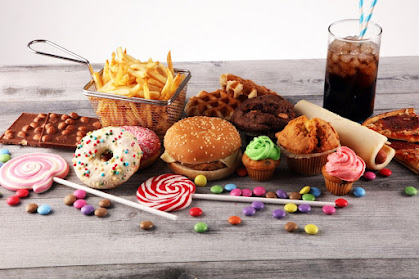How Much Sugar Is Too Much for Your Teeth?
Sugar reduction is an excellent place to start if you want to reduce your oral health concerns. Learn how much sugar is advised, what to look for while shopping, and which foods and beverages to avoid.
Oral health and sugar
Sugar does not hurt your teeth on its own, but when you eat or drink something that contains sugar, bacteria in your mouth do. Tooth decay, gum disease, and other oral health issues are the result of this.
Tooth Decay
Our tooth decay will take place when the bacteria in the mouth eat sugar and produce acids as a byproduct. These acids is destroying the tooth enamel, exposing the weaker, yellow-colored dentine layer beneath, or causing cavities, which can lead to infection of the inner tooth. A white filling or a bigger restoration may be used to repair teeth that already have cavities. If the decay has reached the tooth's soft center, a root canal may be required. To safeguard your other teeth, badly decaying teeth may need to be removed.
Gum Disease
If plaque reaches the gums, the germs that cause tooth decay can also cause gum disease.
Gingivitis is the first stage of gum disease, and it causes the gums to hurt, swell, and bleed when you clean your teeth. Gingivitis is often treated with good daily oral hygiene and a professional hygiene treatment.
Periodontitis is a severe form of gum disease that can result in permanent damage to the gums and jawbone tissue, as well as tooth loss. This necessitates a more thorough deep cleaning from your dentist.
Keeping teeth safe from sugar
To be healthy, you don't have to give up all of your favorite foods as long as you practice excellent dental hygiene and take other measures to safeguard your teeth. This includes the following:
Looking at the labels
- The amount of sugar in each serving is shown on food and beverage labels. Aim for 5g to 10g per 100g to keep below your daily restrictions. A teaspoon of sugar is approximately 4 grams.
Between-meal snacking is prohibited
- It is not just about what you drink or eat, but also about when you do it. When sugary drinks and snacks are consumed at similar time as a meal, they cause less damage to the teeth since your teeth have a chance to recover from acid assaults in between.
Keeping exposure to a minimum
- The less sugar that comes into touch with your teeth, the healthier. Drinks should not be held in your mouth for longer than required, and straws should be used to avoid the front teeth.
Brushing and flossing on a regular basis
- Brushing your teeth twice a day removes residual sugar and helps to decrease plaque on your teeth. You should floss every day to clean the regions that your toothbrush misses.
Sugar-free gum chewing
- Chewing promotes saliva production, which aids in mouth rinsing and acid neutralization. Just make sure the gum isn't loaded with sugar!
Getting lots of water
- Plain water, which helps to rinse and hydrate the mouth, is one of the finest drinks for dental and general health. If your local water supply is fluoridated, tap water is preferable to most bottled water because it helps to build teeth enamel against plaque and decay.
Going to the dentist
- Visiting a dentist and oral hygienist for a complete check-up and clean once or twice a year increases your chances of detecting tooth decay and gum disease before they caused harm and avoiding issues from arising in the first place.







Comments
Post a Comment